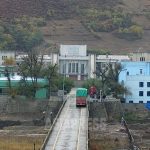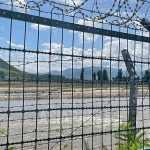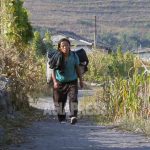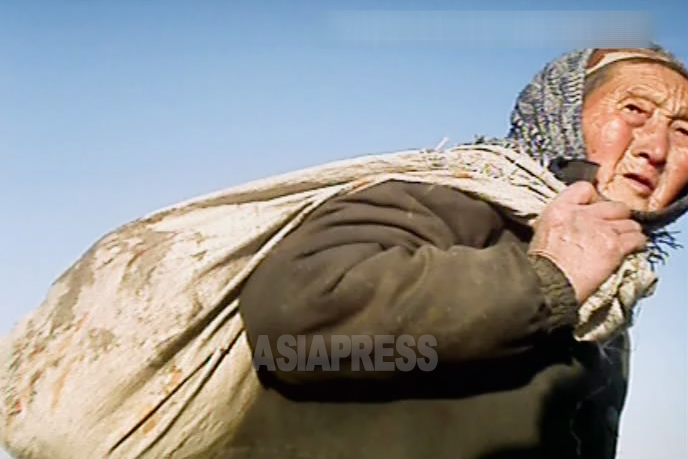
Collective farms throughout North Korea are filled with tension as the fall harvest season begins. The authorities are concentrating their efforts on securing food for use by the government, mobilizing military and civilian manpower to guard farm fields and storage facilities. Government officials have placed extreme restrictions on the entry to agricultural areas, only letting city workers mobilized to work on the farms through, as part of efforts to prevent any stealing of crops. (KANG Ji-won)
◆ Gunshots Heard in the Farm Fields at Night
Using its reporting partners in the country, ASIAPRESS conducted a survey from mid-September to early October at two collective farms in North Hamgyung Province that are currently in the midst of the harvest of corn, rice and potatoes, all food staples of North Korea.
What distinguishes this year’s harvest season from past years is unprecedentedly strict and brutal security over crop yields. Armed guards have been stationed on farms, something unheard of in the past.
Around 500 farmers work the fields at “Farm A,” which mainly cultivates corn. The farm is slightly smaller than the average farm in North Hamgyung Province. ASIAPRESS’s reporting partner conducted a survey of the farm starting in late September.
-- We’ve heard that security on the farms is unusually strict this year.
C: “I was just heading into a farm where I know someone, but the security was so strict it was like entering a secret military base. Two military officers along with two platoons are stationed at “Farm A.” One platoon is stationed at the entry to the farm and the road leading to it at a checkpoint. The other platoon patrols the village and fields along with a guard unit (made up of retired soldiers).
“The soldiers have been given two rounds of blank ammunition and three rounds of live ammo. When I went outside at night, the fields were flooded with lights, and I sometimes even heard the sounds of gunshots. A farmer there told me that the farm had told them not to go out at night because they could be shot if they wander around during the nighttime. I heard that there have been families whose private farm plots in the mountains have been raided by robbers, leaving nothing of the crops they had taken pains to cultivate over the past year.”
ASIAPRESS was also apprised of the situation at “Farm B,” which is in another part of the province. There, too, ASIAPRESS’s reporting partner confirmed that the military was managing security of harvested crops.
D: “Two platoons have been stationed there from a nearby military base, and the farm has mobilized Worker-Peasant Red Guard unit that conducts armed patrols. Anyone caught walking around after 7 PM is treated as a thief. Gunshots can be heard from the farm fields. The authorities say that the guns are used to scare away wild animals, but what wild animals exist these days? It’s just to scare people away (from the fields).”
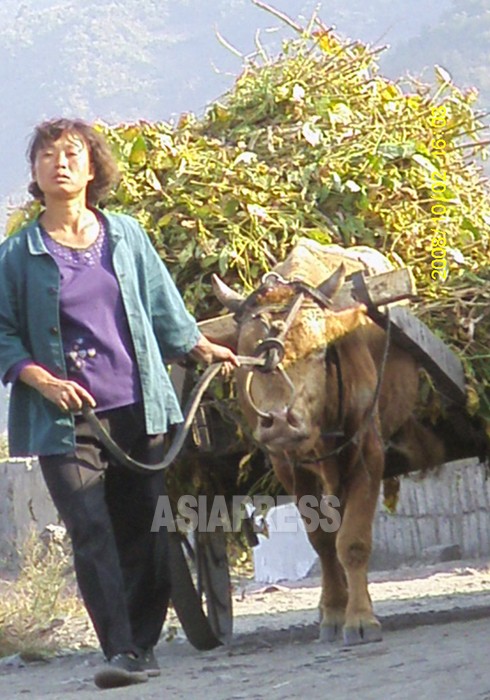
◆ Guarding Against the Robbery of Harvested Crops
-- Is the main objective of all that security to prevent robberies?
D: “Life is hard for many people and with the coming of the fall there’s a lot of people trying to enter agricultural areas. The first objective of the security forces is to prevent them from entering the agricultural villages, then to prevent the stealing of harvested crops. The guards are also conducting searches of people leaving the agricultural areas. One person who was trying to transport the corn they had harvested from their own private plot got all their crops confiscated by a security unit. He was only able to get the corn back when he showed evidence of where he had gotten the corn and gave the security officers bribes.
“That’s how intense the patrols are, and the authorities are even putting up temporary checkpoints. However, farms are still suffering from robberies. In mid-September, farm managers found that corn had been stolen from the fields and tried to track down the robbers, but they had already fled to the mountains and were untraceable.”
According to reporting partner “C,” stamps from the county people’s committee, grain department, police, prosecutors’ office, and state grain purchasing center (a government agency that buys food from farmers) are required to transport more than 15 kilograms of food. There are cases where food cannot be transported because checkpoints take an issue with the people guarding the food. Reporting partners “C” and “D” both said that discontent among the farmers is high because all they want to do is sell their food to make a living.
◆ Strong Opposition by Farmers
From late September, the authorities began levying considerable “burdens” on farmers. At “Farm A,” each sub-work team was told that they would have their rationed amount of food reduced if harvested crops disappeared from their designated farming areas.
※ Sub-work teams are the smallest work units on farms in North Korea. Currently they are made up of around 10 people.
C: “If a farm is robbed or the crop yield is lower than the planned amount, sub-work team members have to given up the amount of food rationed to them to meet the shortfall. Ultimately, the farmers face getting less food if they fail to guard their farm fields, which is why they are taking turns watching the fields at night. Normally, the state should make sure the farm fields are secure. The farmers are all up in arms because they have to work the fields during the day and guard them at night to prevent having their share of the harvest reduced.
ASIAPRESS was unable to receive reports from the Hwanghae provinces, considered the breadbasket of the country, making it difficult to understand how well this year’s harvest will go. (To be continued in the next installment).
※ ASIAPRESS communicates with its reporting partners through Chinese cell phones smuggled into North Korea.
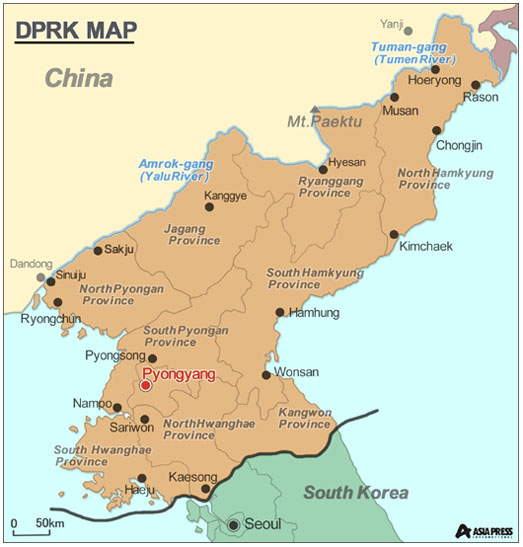
- <Inside N. Korea> Shocking levels of urban poverty forces an increasing number of people to abandon cities to beg in rural areas
- N. Korea begins preparations to accept Chinese tourists in Samjiyon…
- <Inside N. Korea> Massive increase in opium addicts leads to measures by the authorities as the drug is used to treat COVID-19 symptoms
- <Inside N. Korea>Recent farming situation (1) Farm mobilizations begin in earnest…The authorities work hard to prevent stealing of harvested crops
- <Local Interviews>Is N. Korea’s “victory over COVID-19” legit? (1) Fever patients still emerge…People believe the country has achieved herd immunity


